How to Get Rid of Insects on Plants
Sometimes even the word pest is enough to disturb the zen of our indoor garden . It's easier to tolerate them outside (after all, bugs are part of the landscape), but when they invade the comfort of our own living room—that thought alone can keep us up at night. Fortunately, it's often easy to manage pests on indoor plants with little more than some water, a cotton swab, and a soap solution. Here's a guide to get rid of bugs you may encounter:
Often, successful treatment is as simple as washing away the insects with water or dislodging them with a cotton swab.
Aphids
These are the tiny pear-shaped insects that you've probably seen outside in the vegetable plot. They can find their way onto indoor plants, too, and like to cluster around new leaves and flower buds. They suck the sap from the plant and excrete a sticky substance called honeydew.
How to get rid of these bugs: Remove any heavily infested parts of the plant. Wipe off insects elsewhere with a damp rag or spray them off with water in the bathtub. You can also dislodge them with a cotton swab dipped in rubbing alcohol or vegetable oil, or spray them with insecticidal soap. Keep removing them weekly until they're gone.
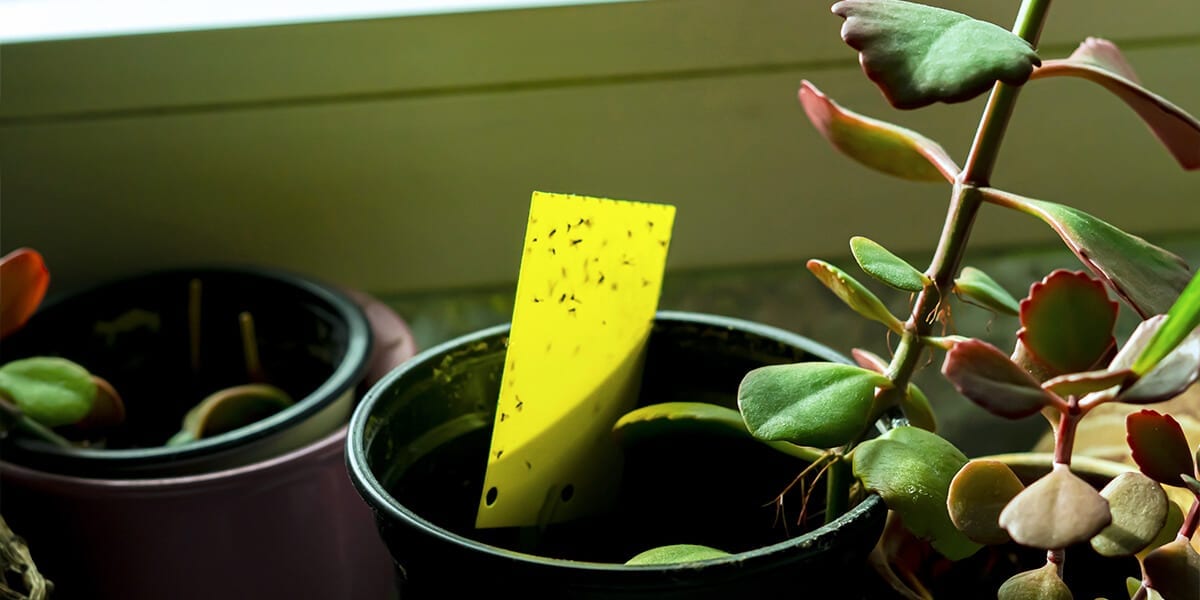
Fungus Gnats
They are small, dark-bodied flies that resemble fruit flies. They lay eggs in the top layers of soil and feed on decaying plant material. In their larval stage, they also feed on your plant's roots. As an adult fly, they are harmless to you and the plant but can become a nuisance as they buzz around your room.
How to get rid of these bugs: Dry out their habitat by letting the top two inches of soil desiccate completely in between waterings. Water your plant from the saucer and remove the water after an hour or so. Spray the soil lightly with insecticidal soap if you spot a resurgence.
Mealybugs
They are slow-moving bugs about the size of a dill seed that look like they're covered in flour. Their eggs look like tufts of cotton and form on leaves and stems. Like an aphid, they suck the sap out of your hottest houseplants and secrete honeydew that attracts a sooty black fungus.
How to get rid of these bugs: Dip a cotton swab in vegetable oil or rubbing alcohol and remove the bugs and eggs from your plant.
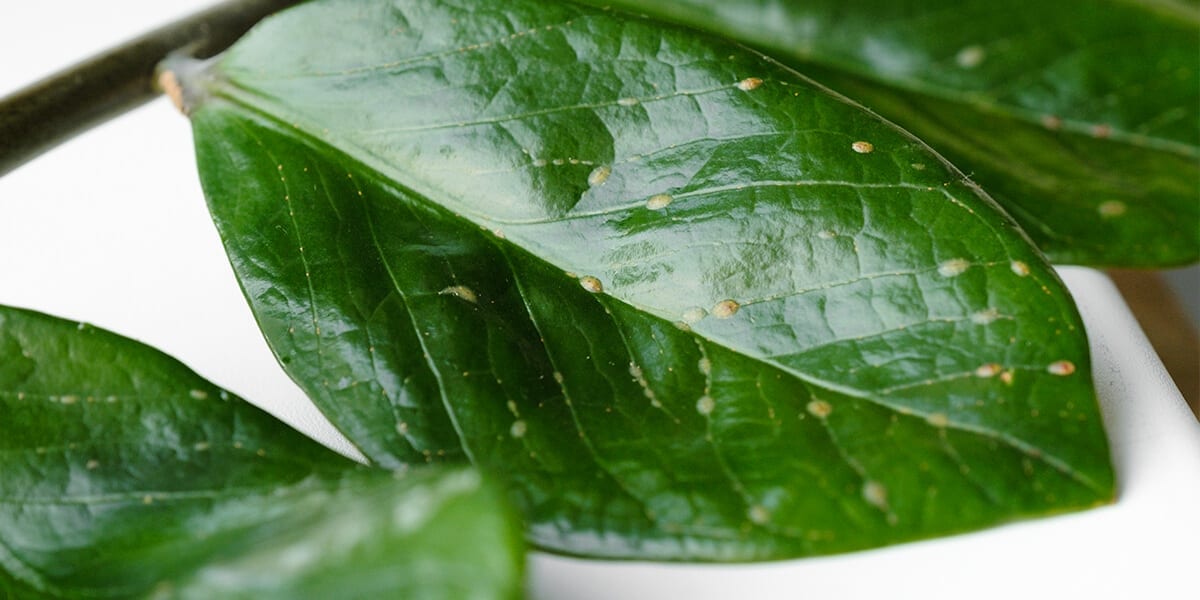
Scale
Another sap-sucker, these bugs appear as tan or brown oval bumps on leaves or stems. Sometimes they look like part of the plant itself. If it's indeed a scale bug, you should be able to scrape it off.
How to get rid of these bugs: A cotton swab comes to the rescue here once again. Dip it in vegetable oil or rubbing alcohol and remove the bugs from the plant. The eggs are invisible to the human eye, so observe the plant closely for the following weeks and remove other scale bugs that you see. For bad infestations, neem oil or insecticidal soap may be necessary.
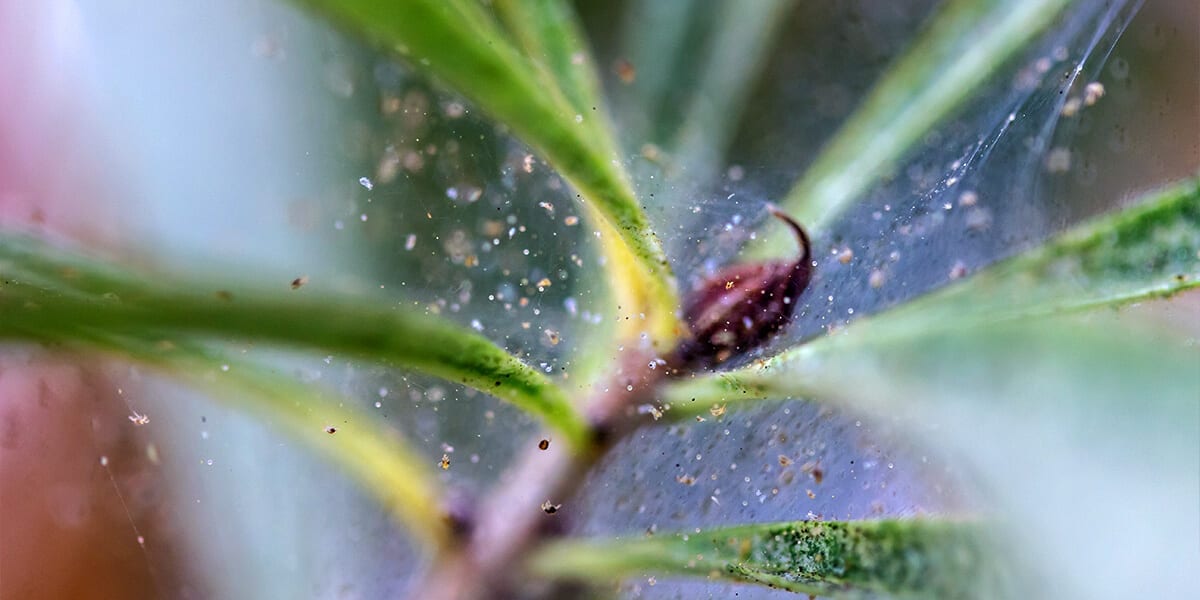
Spider Mites
These tiny red spiders are nearly invisible to the naked eye but leave telltale webs between leaves and stems. They also feed on plants' sap. Infected leaves may show tiny dots of yellow or become dry and limp while remaining green.
How to get rid of these bugs: it's important to isolate the infected plant so the mites don't spread. You can spray the plant with water in your bathtub to remove the webbing and mites. Wipe away any remaining bugs with a cloth. Repeat the process every few days until the infestation disappears. If they persist, you may opt to use an insecticidal soap.
Springtails
The presence of these tiny jumping insects is often a sign of overwatering. They inhabit the soil, feeding on decaying plant matter, and do not actually harm the plant or us. However, they can become a nuisance in large numbers.
How to get rid of these bugs: let the top two inches of soil dry out completely in between waterings, and water from the saucer, removing the water after about one hour. Clean any dead plant material off the soil surface.
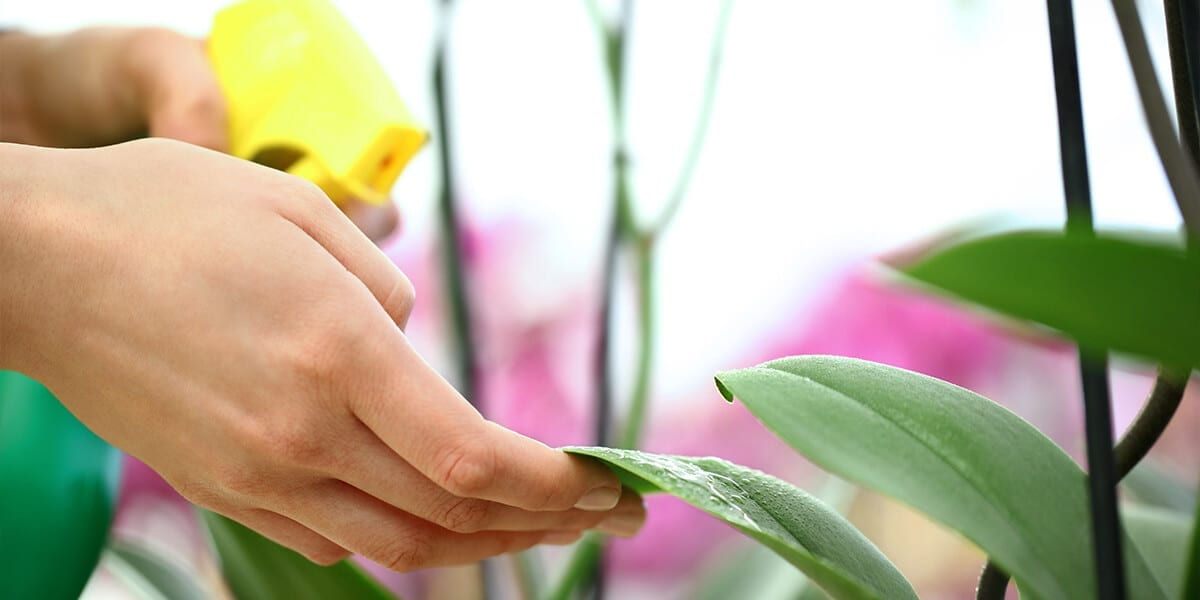
White Flies
They look more like tiny white moths than flies. They often hang out on the underside of leaves and fly up when you touch or water the plant. They suck sap from the plant in their nymph stage and then lay more eggs on the underside of leaves when they turn into adults. Infected leaves may become yellow or stunted.
How to get rid of these bugs: isolate your infected plant away from other houseplants. Remove infested leaves, and spray them off the plant with water before spraying with insecticidal soap. Repeat the process once per week until they disappear.
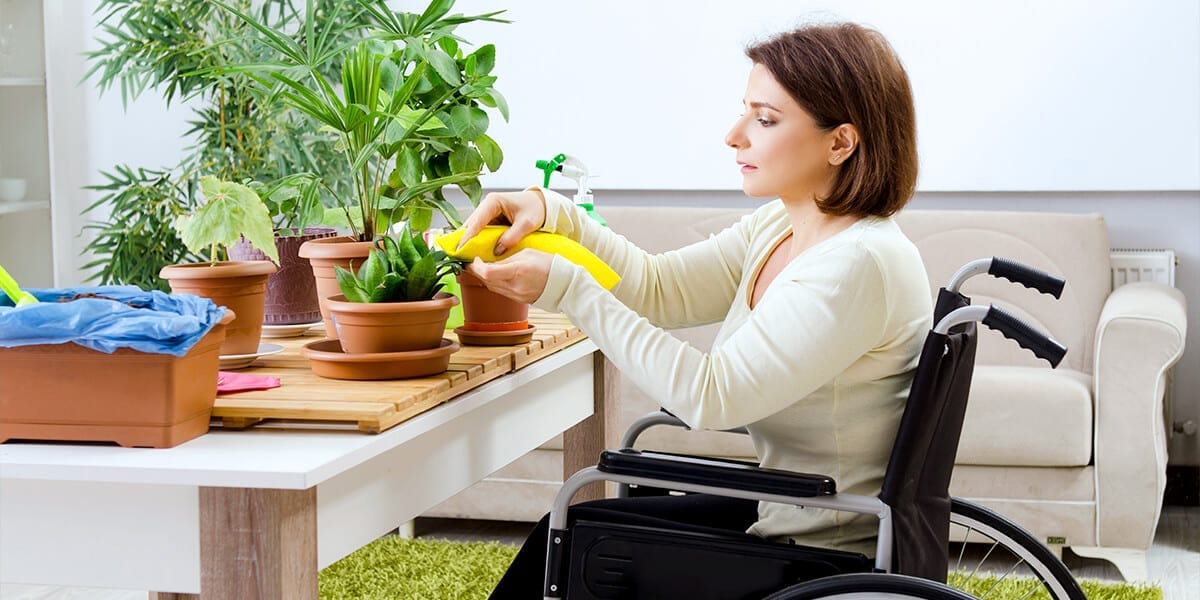
To avoid bugs spreading in the first place, make a habit of looking for pests when you water your indoor plants. If you discover any, it's always important to quarantine the plant away from the other indoor plants, if possible, while treating the infection. Often, successful treatment is as simple as washing away the insects with water or dislodging them with a cotton swab. The key is to be persistent and quell their numbers before they multiply. As a last resort, you always have the option to use an insecticidal spray.
For more houseplant tips, check out our Advanced Houseplant Care blog, and feel free to visit our garden centers in Carpentersville and Bloomingdale. Don't forget to download our Winter Garden Guide to explore all of your indoor gardening opportunities this season!
Platt Hill Nursery is Chicago's premier garden center and nursery.

How to Get Rid of Insects on Plants
Source: https://platthillnursery.com/get-rid-of-bugs-indoor-plants/#:~:text=How%20to%20get%20rid%20of%20these%20bugs%3A%20Remove%20any%20heavily,spray%20them%20with%20insecticidal%20soap.